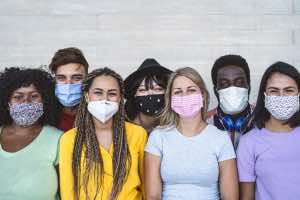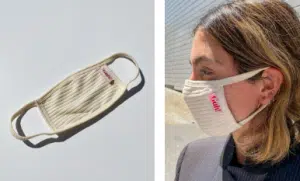
Whether you plan to go outside to get an Antibody test or visit a loved one, you must use a cover. Are you uncertain about the best face masks to use? Don’t worry; this article explains the types that best protect you against COVID-19 and other Virus exams like the HPV DNA Tests.
How to choose the ideal PPE
Face masks can help you stay away from most germs. Some of these germs include bacteria, viruses, and other microorganisms. During the current Covid-19, covering your face can prevent the spread of the disease. As the pandemic spreads through body mediums and fluids, covering your mouth with cloth protection can prevent you from getting the virus. This article explains how fabric covers help prevent the spread of infections. It also guides buyers in choosing the ideal face shields to stay safe during the outbreak.
But before that, let’s review when you need to cover your mouth with this form of protection. How often should you wash these? The covers should be cleaned after every use.
Why It Matters?
Can various types of virus can be spread via masks? Do they offer varying levels of protection? Operational grade N95 respirators provide the best degree of defence against Covid-19. Next on that list is surgical-grade PPE. Yet, this option can be costly and contribute to landfill waste in limited supply. Besides, they are uncomfortable to wear for long periods. Countries that allowed people to wear these reserved them for health workers. Or even for others at particularly high risk.
The information on the preventive importance of single-use paper face covers, or reusable fabric ones are unclear. Yet, it still suggests that face covers can contribute to reducing the transmission of Covid-19. Royal Society’s study claimed that this involved being homemade from fabric.
Cloth vs Paper Surgical Single-use
The data for using masks, which are short of surgical, is still emerging. There appear to be some advantages. However, HPV experts conducting an Antibody test daily still determine the degree to which cloth coats cover the person. A closer coverage is generally best across the years. The CDC always says some protection, even a bandana, is better than nothing. One study in the United States investigated the best-supplied household materials, typical viruses, and bacteria for particles with a diameter between 0.3 and 1.0 microns. It concluded that vacuum-cleaning bags, heavy “quilter-cotton,” or several layers of material are good alternatives.
Scarves and materials from the bandana were less effective, but some particles were still collected. Safe removal and the wearing of face coverings. Before an HPV Test, clean your hands thoroughly with soap and water before wearing a face mask. Cover your mouth and nose with protective material to separate your face and hair. Avoid removing it, and wash your hands if you do. If the cover is wet, replace it. To remove your mask, remove them with elastic tags without touching the forehead. Then, immediately throw it into a closed bin or the washing machine if it is a reusable cover.

